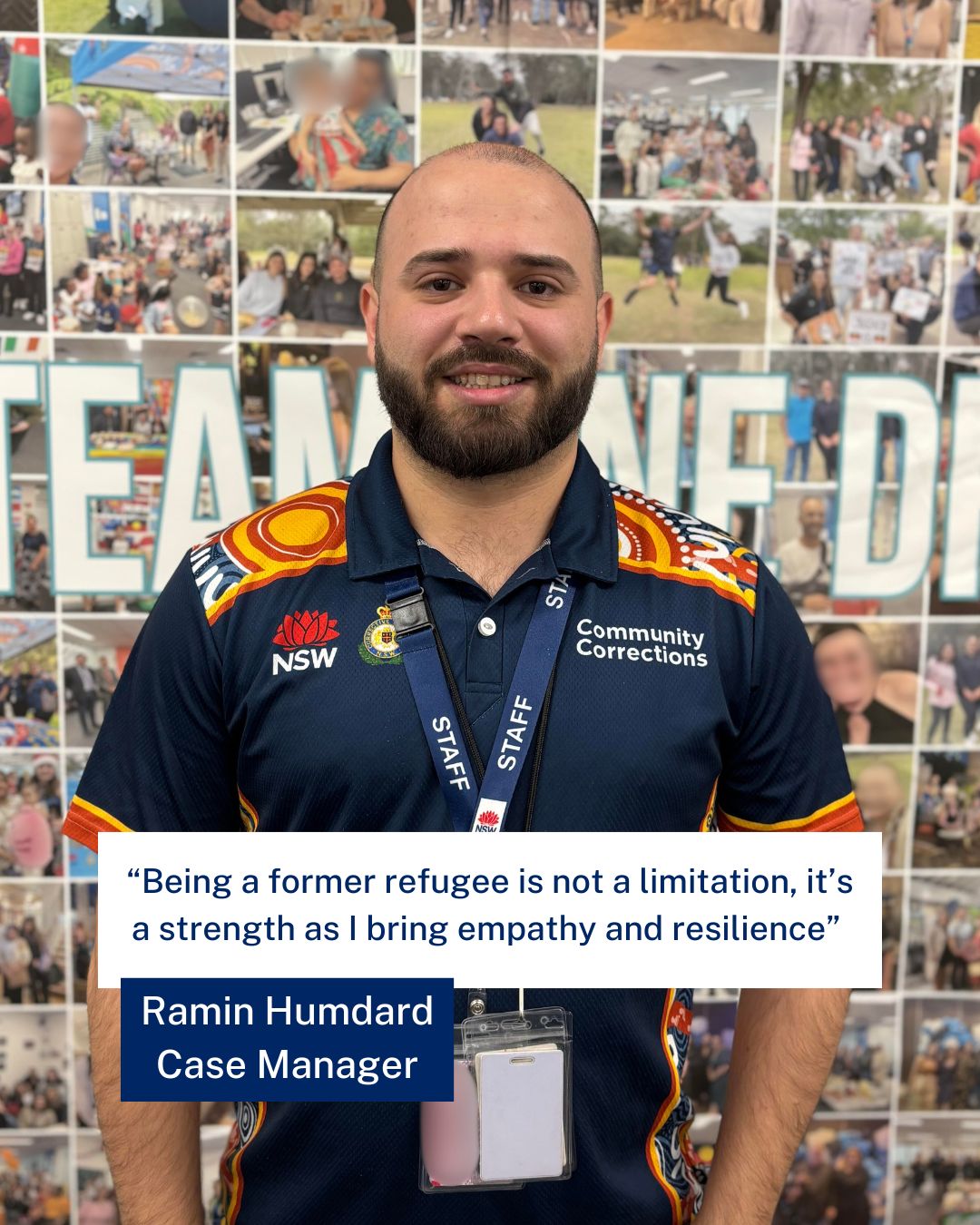Automatic language translation
Our website uses an automatic service to translate our content into different languages. These translations should be used as a guide only. See our Accessibility page for further information.
13 June 2025
Ramin Humdard is not only an inspirational former refugee from Afghanistan but also a highly respected Case Manager with Community Corrections. He brings deep empathy and resilience to his role, supporting offenders as they reintegrate into society.
Embodying the theme of Refugee Week 2025 – Finding Freedom: Diversity in Community, Ramin plays a pivotal role in helping others rebuild their lives - just as he and his family have done.

Ramin arrived in Australia in 2023 on a humanitarian visa and secured employment through the Refugee Humanitarian Employment Program (RHEP) - an initiative that supports refugees and humanitarian entrants in gaining meaningful work and integrating into the Australian workforce.
Although he once dreamed of becoming a school teacher - “I loved the idea of sharing knowledge, even from a young age” - Ramin’s life took a different path when he was forced to flee his homeland with his parents and siblings. However, he didn’t give up on his passion for teaching. While completing his bachelor’s degree in India, he began volunteering with UNHCR and its partner organisations, teaching refugee children from diverse backgrounds. He continues to pursue that passion by working closely with clients and facilitating refugee group sessions in Australia.
When he arrived in Australia, like many newcomers, the adjustment was not easy. From finding affordable housing to coping with isolation and missing loved ones, the early days were tough.
“Even though I had some relatives here, everyone is busy with their lives,” Ramin explains.
“It’s easy to feel isolated in a new community when you don’t yet have close friends to talk to or share your feelings with.”
To stay connected to his roots, Ramin attends cultural events and volunteers with newly arrived Afghan refugees, helping them understand Australian culture. He’s passionate about giving back and sharing the beauty of his new home.
“I love the weather, the beautiful beaches, and how scenic Australia is. It’s truly a stunning place to live,” he says.
“I’ve developed a real love for Australian coffee, it’s the best! Australia is so multicultural that I get to enjoy all kinds of food here.
What don’t I like? I haven’t seen any yet, but I’m definitely afraid of snakes!”
Ramin’s lived experience of war and displacement has shaped his approach to his work. His empathy and strength guide him as he supports clients on their rehabilitation journey.
“Having faced many challenges in life, I deeply value the opportunity to be welcomed into this beautiful country. I want to give back by contributing positively to the community and showing that people like me can be an asset to Australia.”
“What I love most is being able to make even a small positive difference in someone’s life. Supporting clients in their rehabilitation journey and helping them reintegrate into society is incredibly rewarding. This work doesn’t just support me financially - it feeds my soul.”
This Refugee Week, we honour stories like Ramin’s - stories of resilience, strength, and unity that reflect the true spirit of Finding Freedom: Diversity in Community.
“Refugees don’t come as a burden - they come with potential,” Ramin shares.
“When given a chance, they can truly contribute to the fabric of this country.”
Last updated:
We acknowledge Aboriginal people as the First Nations Peoples of NSW and pay our respects to Elders past, present, and future.
Informed by lessons of the past, Department of Communities and Justice is improving how we work with Aboriginal people and communities. We listen and learn from the knowledge, strength and resilience of Stolen Generations Survivors, Aboriginal Elders and Aboriginal communities.
You can access our apology to the Stolen Generations.